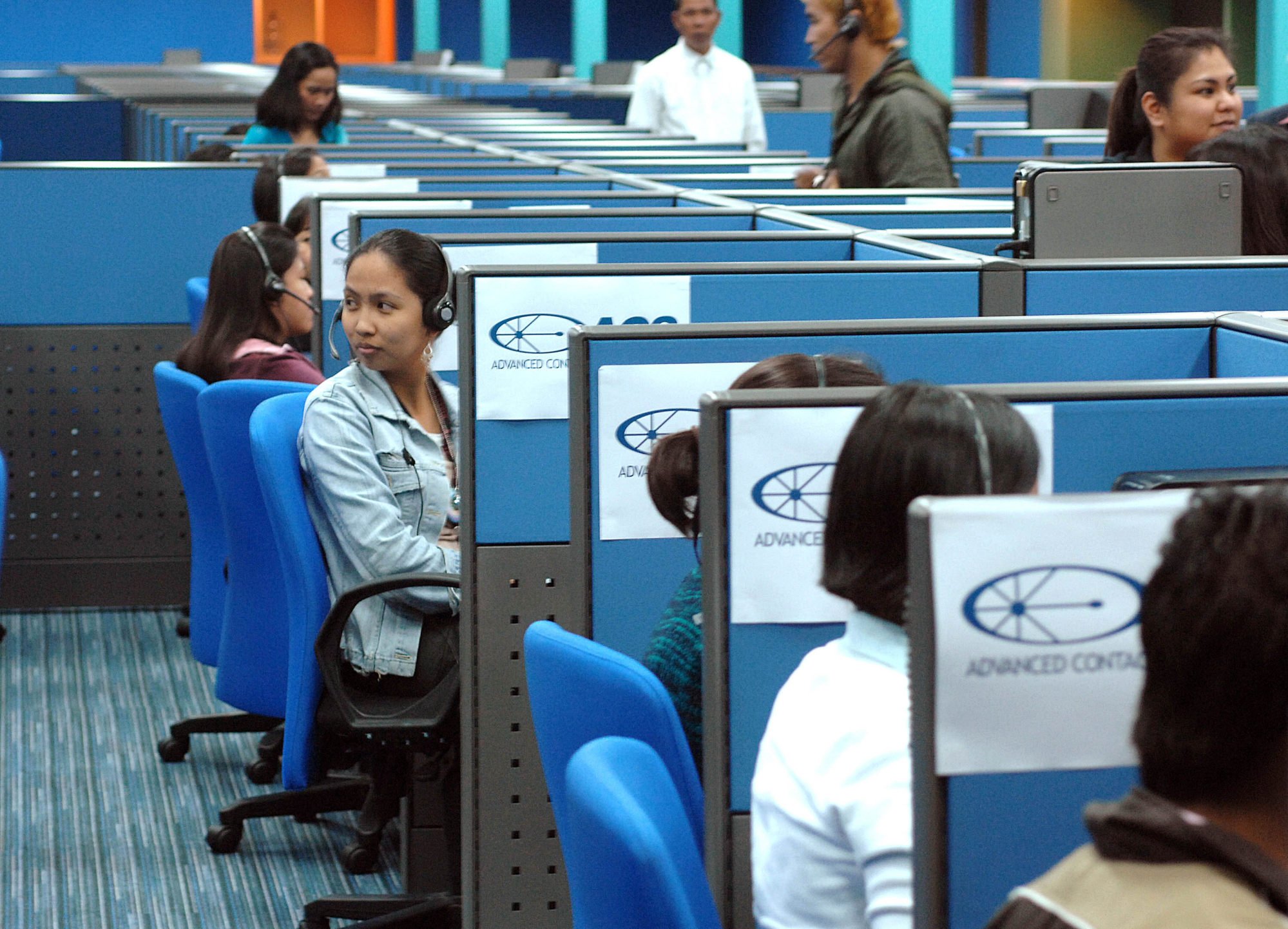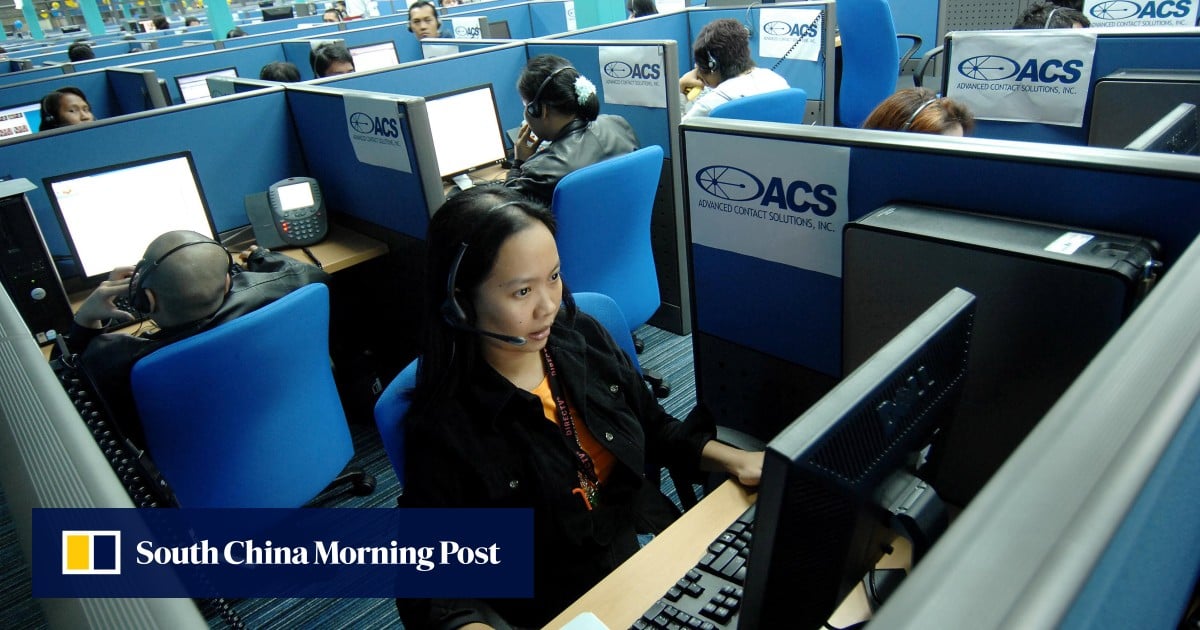Although he placed his order, a US$20 chicken katsu curry, through a self-service kiosk, the cashier was on standby and could control the point-of-sale system remotely.
He also had an option to tip the cashier, he said.
Goldstein’s tweet has received over 18 million views and spawned a variety of takes on the use of outsourcing technology to disrupting sectors such as the F&B industry.
One commenter wrote, “It’s kind of a no-brainer when you can pay this virtual worker US$5 per hour versus US$20 for a local, and this virtual worker is more grateful for the job while also treating the customer with more respect.”
Goldstein said the company in charge of virtual cashier service at Sansan Chicken was called Happy Cashier.
Australian shows how to keep dirty Manila river clean but can it stay pristine?
Australian shows how to keep dirty Manila river clean but can it stay pristine?
Although Happy Cashier does not have an official website and very little information is available about it online, Chi Zhang, the company’s CEO and founder, told Fortune earlier this month its aim was to “empower small businesses by providing exceptional virtual cashier services, as well as operational assistance”.
He also said the service was being tested at a few restaurants throughout the Greater New York City Area.
This Week in Asia found job ads seeking “Happy Cashiers” posted to the Philippines’ sections of Glassdoor and Indeed on April 8. The requirements in the ads include 20- to 40-hour rotational night shifts from Mondays to Fridays, as well as weekends.
The salary listed in the job ads is 112 Philippines pesos (US$1.98) an hour, with the possibility of earning more from tips and performance bonuses. By comparison, the minimum wage in New York City is US$10.60 for tipped workers such as waiters.
The Happy Cashier job ads were posted by Longview Management Group, which describes itself as “a Philippines-based company that hires, pays, and manages highly qualified talent for US-based companies”.

Innovation or exploitation?
Goldstein’s experience highlights a small, growing trend among restaurants that are turning to virtual cashiers as a way of cutting costs and addressing staff shortages.
In January, the company expanded its operations to the United States through Nevada-based Mediterranean chain Crazy Pita.
Outsourcing is a major industry in the Philippines, with 1.5 million employed in the business process outsourcing (BPO) industry, according to the IT and Business Process Association of the Philippines (IBPAP).
The BPO industry is economically vital to the country, bringing in US$32.5 billion in revenue in 2023, according to IBPAP.
‘All about the money’: Nepali, Filipino students flock to Australia – for work
‘All about the money’: Nepali, Filipino students flock to Australia – for work
Dr Virgel Binghay, a professor at the University of the Philippines’ School of Labour and Industrial Relations, told This Week in Asia that the expected rise in outsourced roles that leveraged automation for remote work was driven by factors such as technological advancements, economic incentives, and evolving workplace norms.
“Developments in communication, automation, and cloud computing have made remote collaboration more feasible and cost-effective, aligning with the global trend of tapping into international talent pools for cost savings and around-the-clock service capabilities,” Binghay said.
While technological changes have enabled workers to seek remote employment all across the world, some have criticised this form of outsourcing as exploitation as it reinforces low wages.
“They don’t want to pay normal everyday working class Americans a living wage, and they don’t want immigrant workers. So they turn to exploit Southeast Asians, who they can underpay and fire at a whim,” one X user wrote in response to Goldstein’s viral post about Happy Cashier.
“This is what so many [from First World and Western countries] will never get. [We] Filipinos, alongside the Global South, are merely cheap labour commodities. With the advent of AI, the anxiety of being disposed of in exchange for a cheaper alternative has never more real,” another X user said.
The minimum wage in Metro Manila is 610 pesos for non-agricultural workers, or roughly 76.25 pesos an hour. JobStreet pegged the average monthly salary range for a cashier in the Philippines as being between 14,000 pesos and 18,000 pesos (US$245-US$316).
New Zealand’s state-sector job cuts cast more gloom on recession-hit economy
New Zealand’s state-sector job cuts cast more gloom on recession-hit economy
The salary advertised in the Happy Cashier job postings – a monthly base pay of 17,920 pesos – falls slightly under the higher end of typical cashier wages in the Philippines. The Happy Cashier jobs are on a 12-month contractual basis, with no benefits such as health insurance, although performance incentives and tips are included.
Yet there are reasons why roles such as virtual cashiers still might seem more attractive despite the marginal increase in wages. Binghay described them as a “complex interplay of motivations” driven by high inflation rates, limited employment opportunities, personal aspirations, and global labour market dynamics.
“Key factors influencing this choice include the empowerment of working from home, which saves on commuting costs and enhances work-life balance; the flexibility offered by shift work, allowing for a better alignment with personal commitments; and job security, offering stability in an uncertain global economy,” Binghay said.

In addition, Filipinos may also see the prospect of working for international companies as an opportunity to advance their careers and develop skills.
Filipino users shared on Reddit why they chose to go into BPO. “Working at a BPO can be fine depending on the account you land. There are pros such as high salaries or you earn money quickly because of incentives,” one wrote. “As long as you have good communication skills you can apply anywhere.”
Binghay said the decision to engage in virtual cashier positions “reflects a comprehensive evaluation of benefits that extend beyond immediate financial gain”.
Determining whether these types of roles were equitable or exploitative would depend on a comprehensive evaluation of a company’s employment conditions, the labour professor added.
“Fair practices involve appropriate compensation and benefits, whereas exploitative practices might result from underappreciation of workers’ contributions and insufficient benefits, highlighting the importance of carefully considering workers’ well-being and career prospects in the global job market,” he said.
Singapore gives workers the right to request more work from home, 4-day weeks
Singapore gives workers the right to request more work from home, 4-day weeks
Although remote working technology can significantly enhance efficiency and productivity, resulting in new job categories, Binghay warned that the growth of outsourced roles could lead to potential challenges regarding data security, job displacement, and the deepening of economic inequalities.
Lower-skilled workers were particularly vulnerable to these issues, he added.
“This trend may provoke new regulatory measures to ensure worker protection and fair labour practices in cross-border employment,” he said, adding that the “potential diminution of human-centric interactions” was also a cause for concern.
Binghay noted, however, that the rise in virtual cashiers indicated a future where geographical boundaries were becoming increasingly irrelevant, enabling an interconnected global workforce.
“This trend suggests a future where remote work would be normalised across a variety of roles, leading to innovative challenging conventional work environments and innovative business and service delivery models,” he said.


